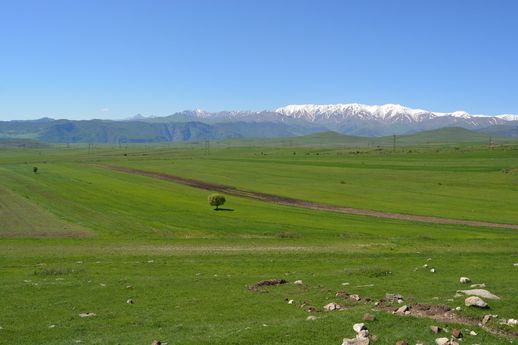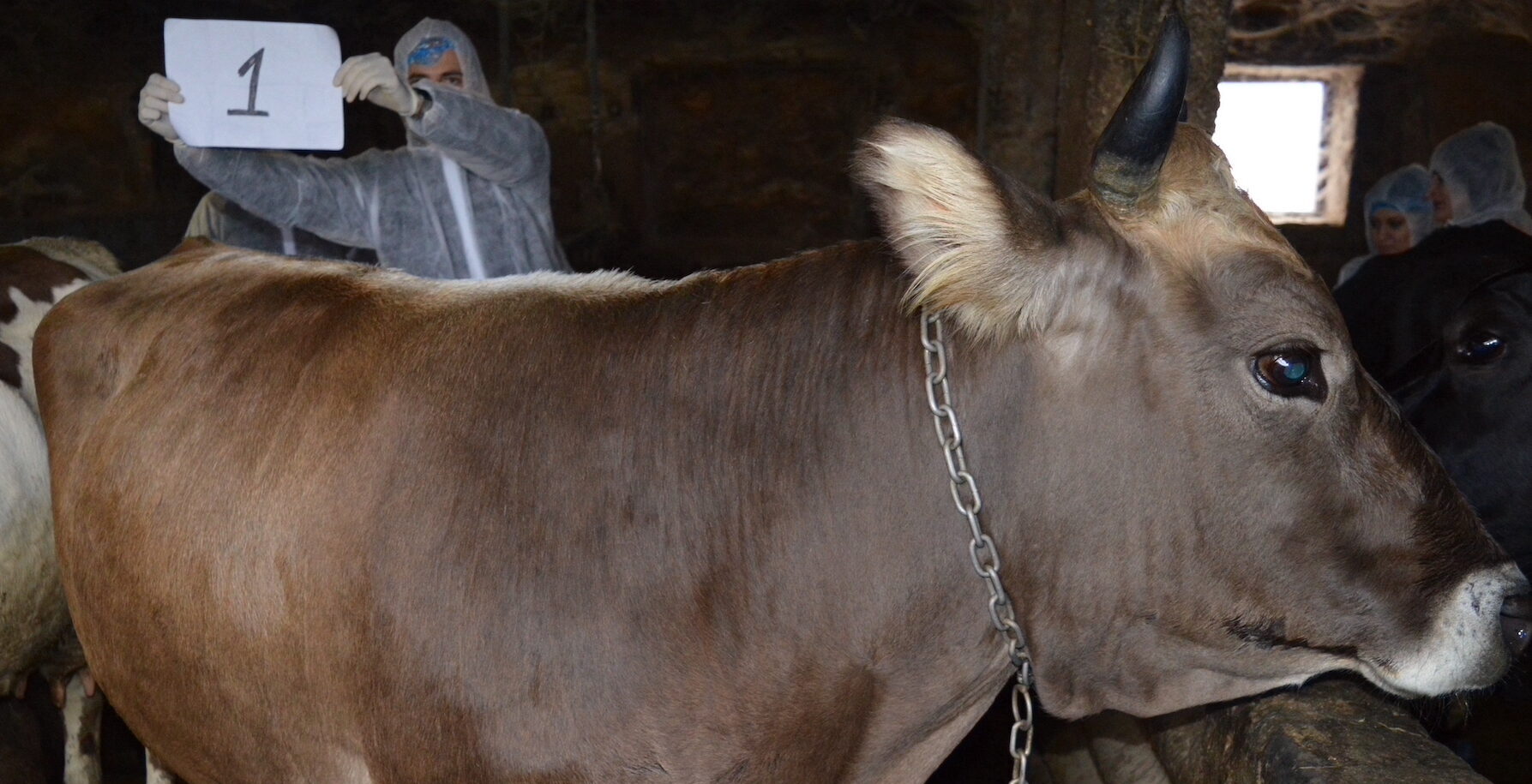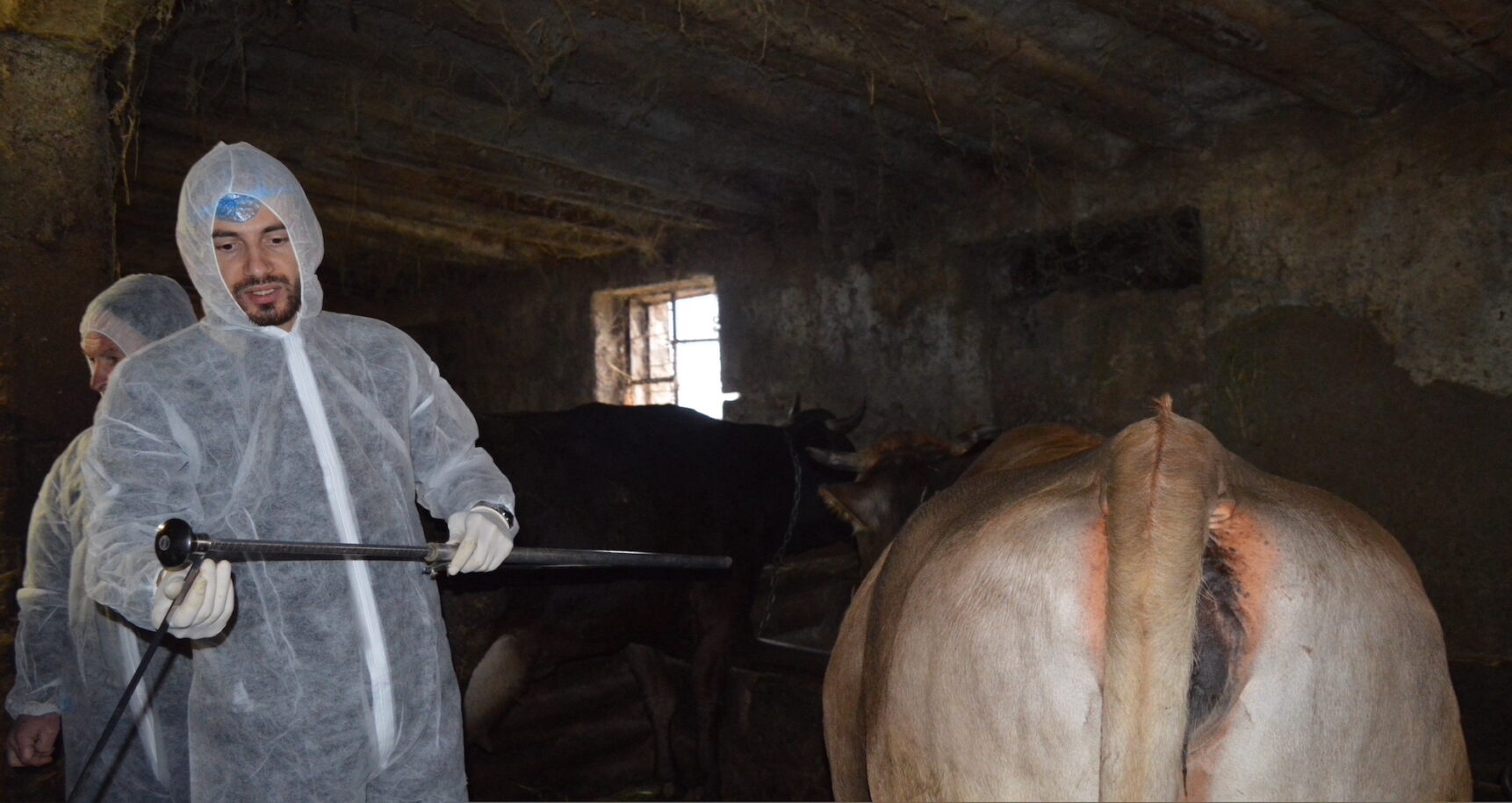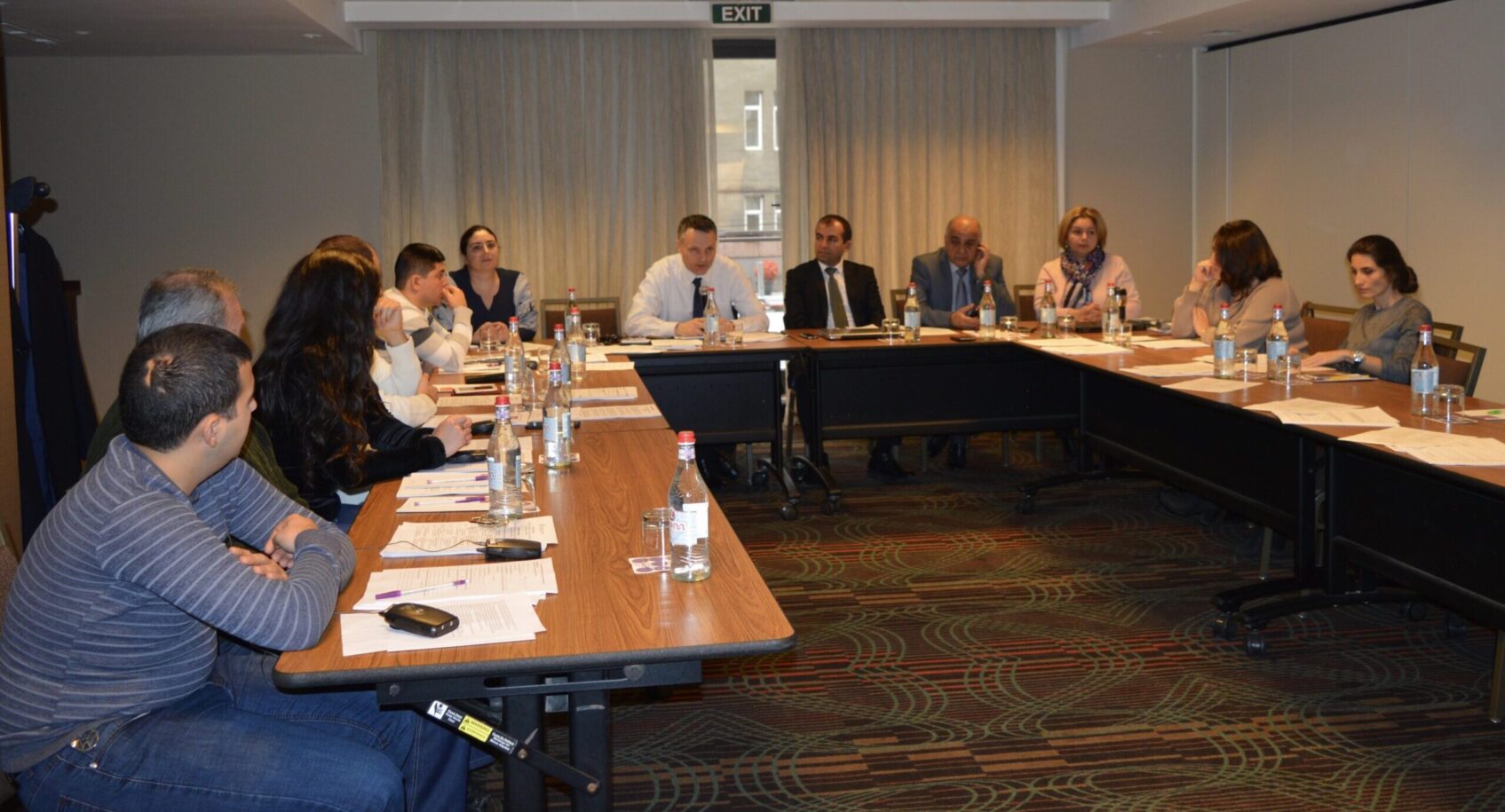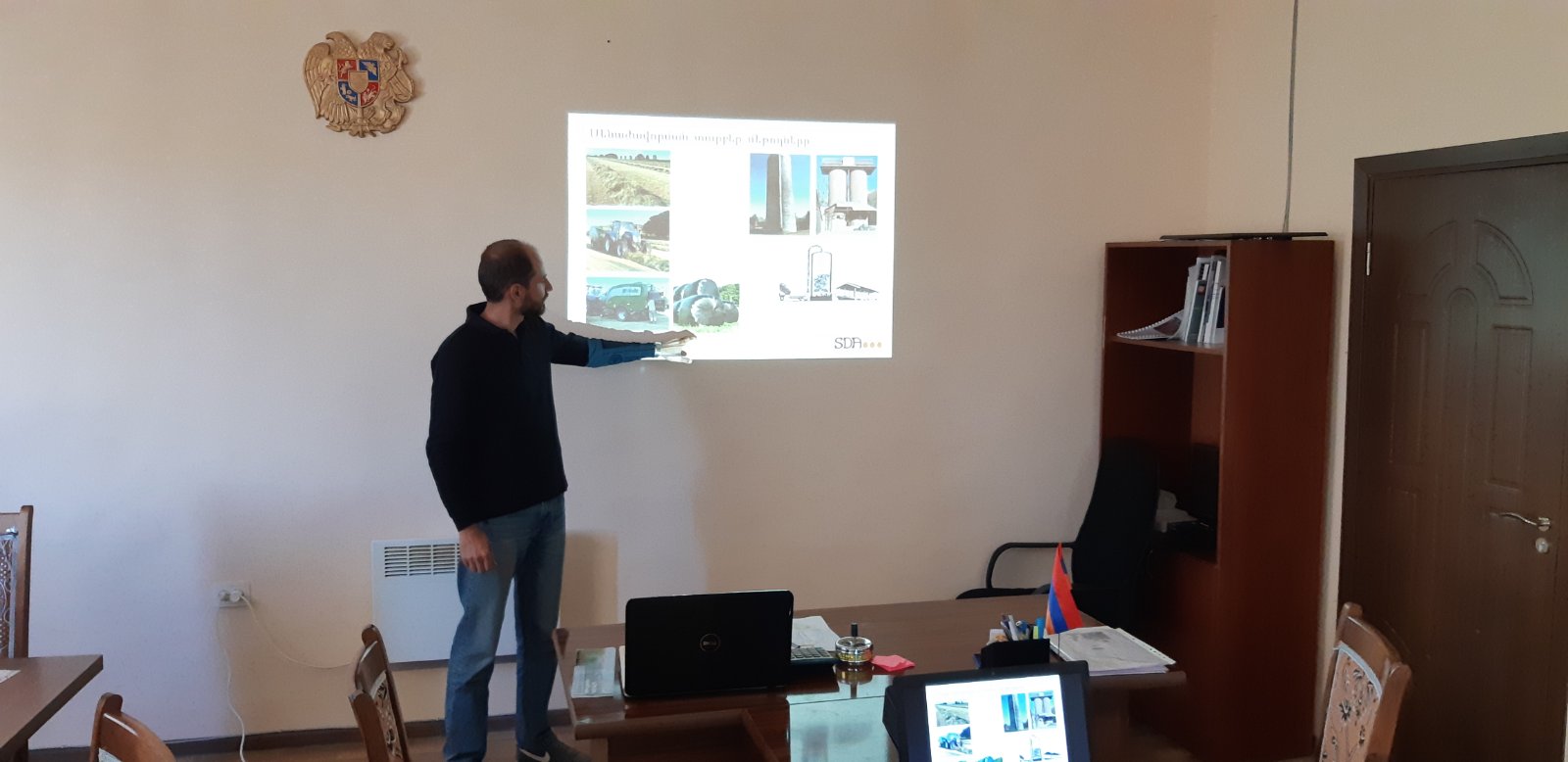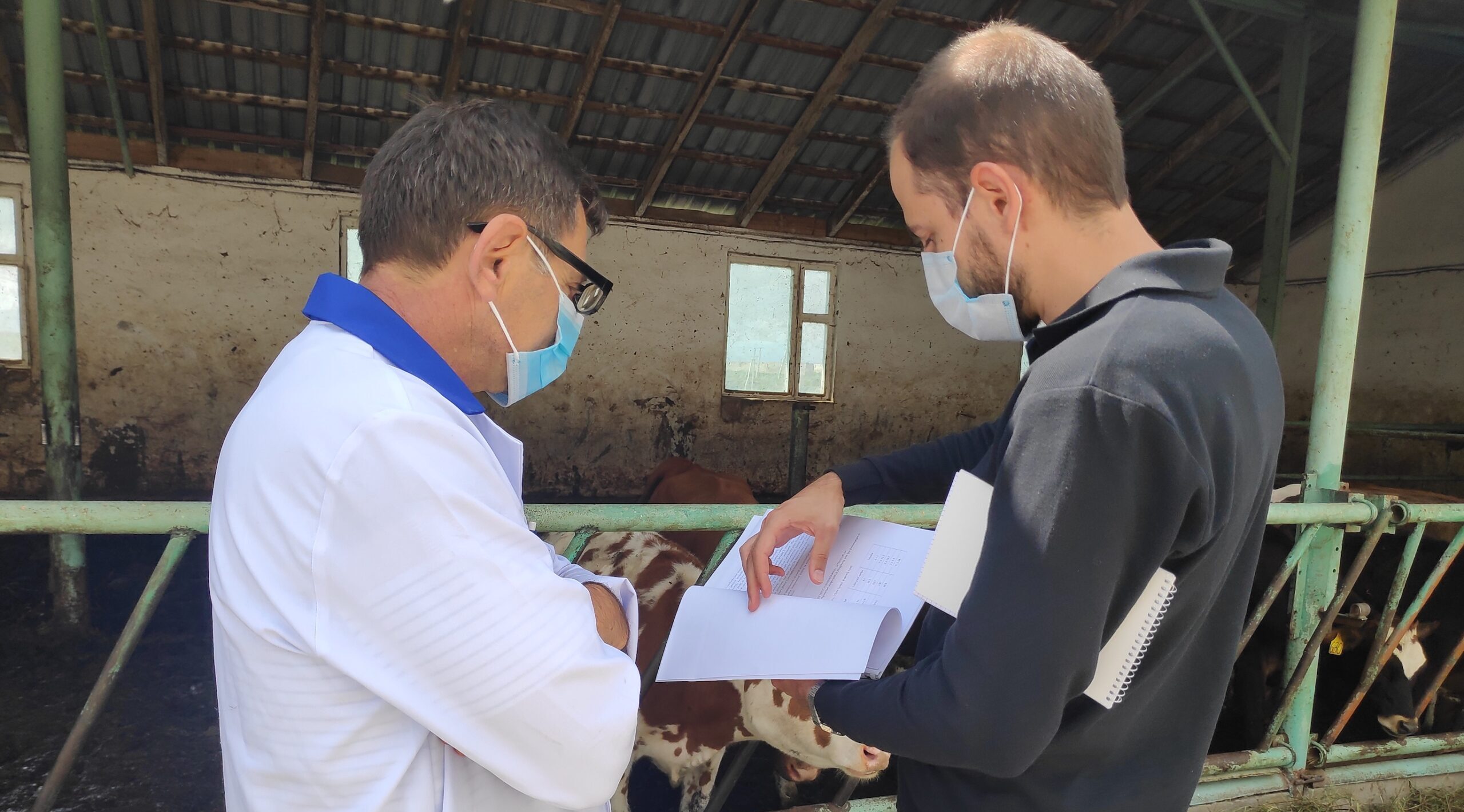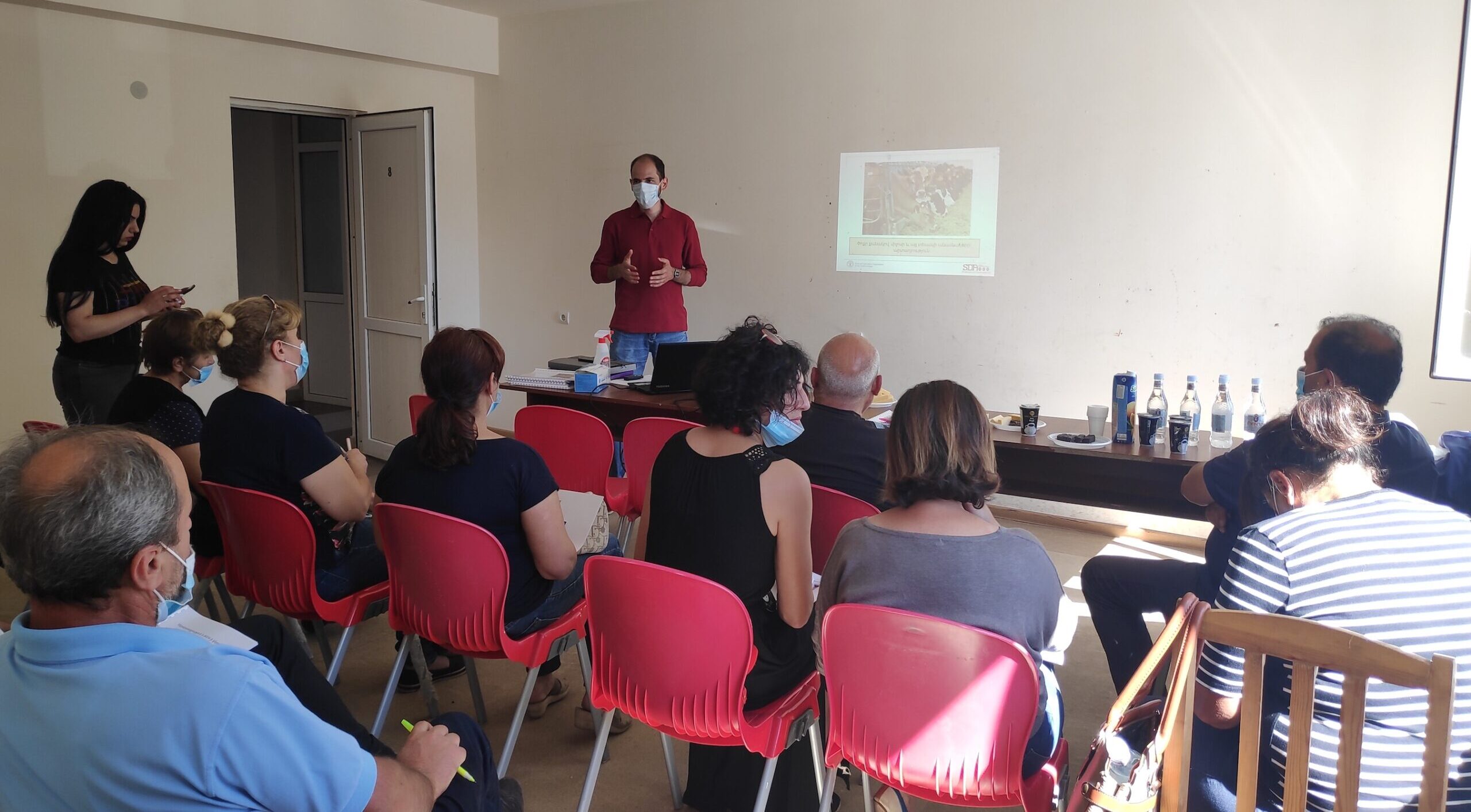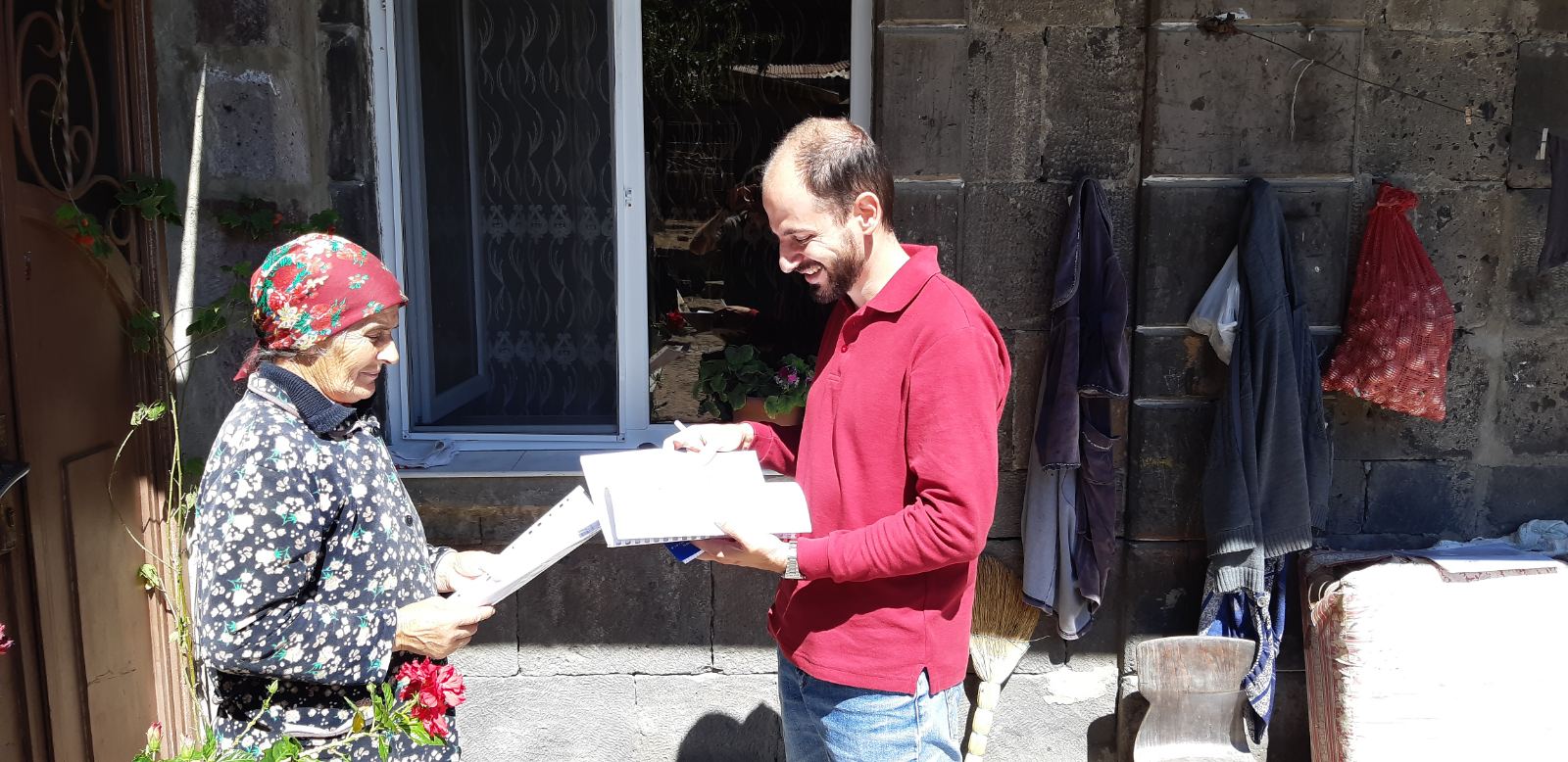Several studies have been carried out by “Strategic Development Agency” NGO, ordered by FAO, namely:
The “National survey on conservation of dual-purpose cattle and collection of genetic samples” was conducted in 5 marzes (Kotayk, Syunik, Gegharkunik, Lori, and Shirak) totaling 64 communities/rural settlements. The study was conducted by applying distinctive and point-based models. Major attention was paid to the identification of gender aspects of livestock farming, particularly, involvement of women and men in the management of farming activities in the various regions of the country, decision-making levels, gender inequalities, and other issues.
The study is aimed to analyze and assess the current situation related to the production environment, breeding background phenotypic characteristics, and the genetic resources of the Caucasian Brown cattle breed in Armenia, to identify the priorities, gaps, bottlenecks, and opportunities for the selected breed.
“Assessment of the current situation of Artificial Insemination services” and training on “Silage and fodder preparation” was conducted in 6 marzes of Armenia: Kotayk, Syunik, Gegharkunik, Shirak, Lori, and Vayots Dzor.
In the framework of this project SDA implemented the following activities:
- Assessment of the current situation of Artificial Insemination services among dairy smallholders and service providers, assessment report developed with recommendations on areas of improvement in Artificial Insemination services.
- Farmers’ training organized on silage and fodder preparation.
- Quality assessment survey of silage and fodder preparation.
The purpose of the project was to assess the policy background, technical and infrastructural constraints of Artificial Insemination, along with the availability of tools and training and farmers’ interest in Artificial Insemination, develop training materials, identify farmers, organize and conduct farmers’ training on silage and fodder preparation as well as to evaluate the nutritional value of the silage and fodder.






